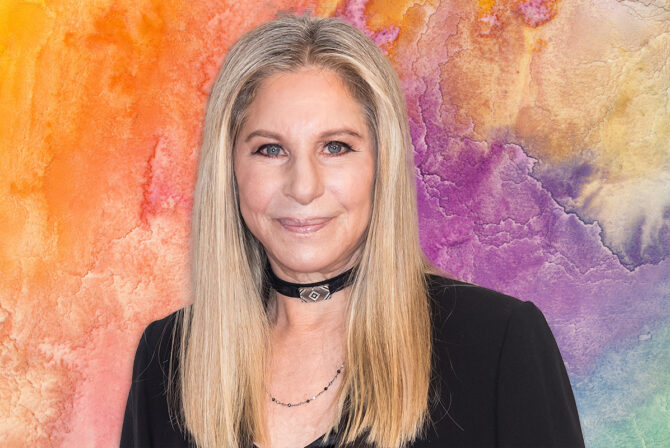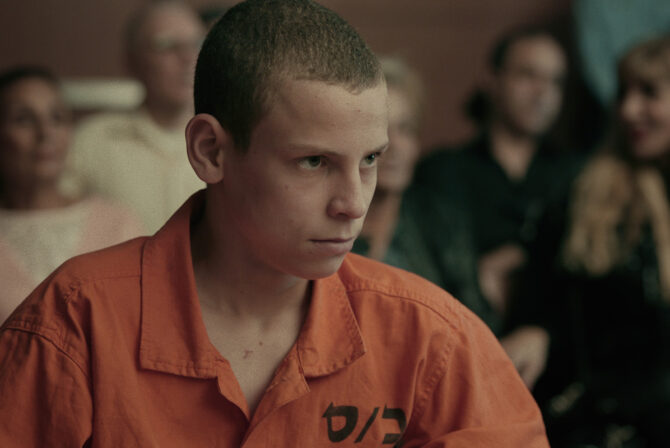Back in 2011, one of Israel’s most beloved playwrights, Anat Gov, said farewell to her audience in song.
On the stage of the Israel’s national theater, in a play directed Edna Mazia — Gov’s longtime collaborator on hit plays like “Lysistrata 2000,” an updated comedic version of the Greek classic — Gov fashioned a cancer treatment ward, much like the one she was frequenting in her own fight against colon cancer.
“Sof Tov,” translated as “Happy End,” was a musical comedy about cancer and about choosing your own, well, happy ending — as happy as it can be in the shadow of cancer, at least. The show was enhanced by the great music of Shlomi Shaban.
A year and a half ago, Gov passed away from cancer. But that last oeuvre of hers is now a movie starring Andie MacDowell as Gov’s stand-in Julia Roth, an aging actress dealing with a colon cancer diagnosis. Roth pursues treatment in the UK, where she finds three other women dealing with the condition in very different ways.
Dramatic and comedic master Miriam Margolyes plays Judy Schwartz, an older Jewish woman whose entire life is built on beating the odds to survive. Rakhee Thakrar (“EastEnders,” “Sex Education”) plays Iman, whose name means faith (in the original play she is Haredi, and her name is Emunah), a young mother who navigates the disease through the prism of Islam and belief. The enchanting Sally Phillips plays Mickey, a New Age-y free spirit whose joy and zeal for life can’t be muted by the grim medical setting.
Adapted for the screen by screenwriter Rona Tamir and directed by Tal Granit and Sharon Maymon, “My Happy Ending” channels that same wonder and joy of life that Gov’s play exuded, as well as her love for exploring the lives of women.
The team was definitely starstruck by their iconic female lead: “We’re fans and it’s beyond amazing,” Granit says of MacDowell, “We feel that she’s the perfect match for the role. She brought something really genuine and heartwarming — and funny.”
“Yeah, she’s definitely the heart and soul of this,” says Tamir.
Filmmakers Granit and Maymon are known for bringing whimsy to end of life stories: Their great 2014 “The Farewell Party” is a tragicomedy about assisted suicide that takes place in a retirement home. They see “My Happy Ending” as “another piece in the puzzle of our creations, speaking again, and especially in this moment in history, about the freedom to choose,” Granit told Kveller.
“I think both in Israel and in the States… talking about the freedom to choose how to live your lives and also how to end them, and putting five women in the center of the film, is very important for us,” she added,
“My Happy Ending,” despite all its whimsy, is ultimately about bodily autonomy. In both the movie and the play, the women make choices about how and if they should tackle their respective treatments — choices that I won’t spoil, but that will feel intimately familiar to anyone touched by that dreaded C word.
“The movie isn’t advocating anything when it comes to how to treat your disease. It’s not advocating pro or con, anything; it’s advocating pro-choice,” Tamir explains.
Shot in Wales in the heart of the pandemic, “My Happy Ending” is a movie about mortality that also manages to be funny and feel like lush escapism. Instead of breaking into song as they do in Gov’s original play, the four women go on “vacations,” fantastical imaginative journeys that take them far away from the cold, sterile world of their chemo treatment — to the hearts of a jungle, to the beach, to cozy familiar living rooms — all enhanced by the magical otherworldliness of their locations. Granit and Maymon managed to move seamlessly between imagination and reality, comedy and grief.
There’s a fifth woman who is just as key a character as the core four: Tamsin Greig, a true icon who plays a very fun Jewish mom on the British show “Friday Night Dinner,” plays Nancy, Talia’s agent. She is, according to Tamir, the representation of those around cancer patients, “because cancer is never one person’s battle… It has such a huge impact on everyone’s surroundings.”
Anyone who has had a loved one battle cancer will certainly be touched by Greig’s performance, the way she oscillates between deniall, the desire to fight it at all costs and totally immersive heartbreak. It’s hard not to fall in love with these five characters, and the movie is largely worth watching for their magnetizing performances.
Motherhood is a key presence too, factoring keenly into these womens’ decisions around fighting their diagnosis. Iman gets diagnosed in a routine pregnancy checkup. Mikey finds new meaning in motherhood. And Julia’s decision about her own care is largely shaped by her relationship with her grown children.
Gov was also an important character in the moviemaking process. The movie, full of poignant jokes about cancer and its very own McSteamy character (played by a very lovable and easy-on-the-eyes Tom Cullen), channels her keen desire to entertain — both as a playwright in her own write and as a collaborator of her husband, celebrated comic and entertainer Gidi Gov. Just like the original, it is actually a really fun watch about a really un-fun subject.
It’s infused with the joyful, life-loving spirit of her work, which didn’t shy away from difficult subjects but also never left its viewers without a source of illumination.
As they were shooting the movie in a very scary time, “we asked [the team] to remember to enjoy themselves also,” Granit and Maynom said, “because that was “part of [Gov’s] message.”
“She’s such a special person,” Granit said, adding that she is excited to bring her message of celebrating life to “many more people than in Israel.”
In fact, the entire movie takes place at the Gov Memorial Center — so “her name is always there in the frame,” Maymon says.








